FSX V-Speed Gauge Fix
V-Speed Gauge Fix brings dependable V1, Vr, and V2 calculations to standard airliners in Microsoft Flight Simulator X, adapting proven logic from the FS2004 original. A compact 2D readout plus 80-knot, V1, Rotate, and V2 callouts sharpen takeoff technique across varying weights and flap settings.
- File: fsx_jelair04vsp_fix.zip
- Size:197.66 KB
- Scan:
Clean (2d)
- Access:Freeware
- Content:Everyone
This freeware add-on offers a refined V-speed gauge that calculates V1, Vr, and V2 velocity markers for standard commercial jetliners in Microsoft Flight Simulator X. It provides both visual and audible prompts in the 2D cockpit, helping flight simulation enthusiasts consistently achieve safer and more precise takeoffs, regardless of weight or flap configuration. Original work by Jacob Larsen (JEL) for Microsoft Flight Simulator 2004, later adjusted for FSX by Anthony Eades.
Key Functional Elements
Auto-Calculation of V-Speeds: The system calculates relevant values (V1, Vr, and V2) based on aircraft weight, flap inclination, and flight dynamics. Although developed for civilian jets, the software is capable of approximating performance for most airliners.
Aural Cues: Co-pilot callouts are triggered at 80 knots, V1, Rotate, and V2. The sounds are stored as WAV files, allowing you to substitute your own recordings if desired.
Intuitive Readout: A compact display in the panel’s 2D view shows speed readouts in a clear, unobtrusive format. This can be left visible or hidden via the panel configuration.
Focused Usage: Designed for Boeing 737 (several variants), 747-400, and other typical commercial types. While you may choose to try it on alternative aircraft, performance is not guaranteed outside standard jetliners.
Installation Guidance
Placement of Files
- dsd_xml_sound3.gau goes into the main Gauges directory.
- The JELAIR-sounds folder, including all associated sound assets, must be inserted into the simulator’s primary Sound folder.
- The JELAIR folder, which contains essential XML files and additional WAV files, is placed in the main Gauges folder. It should include nine specific items, such as JEL-Vspeed.xml and the individual callout .wav files.
Modifying the Panel Configuration
Locate the panel.cfg in the aircraft’s panel folder. Back up this file before making changes. Within [Window00], append a line for the sound gauge:
gaugexx=JELAIR/Sound3!dsd_xml_sound3, 20,20,,,./gauges/JELAIR/Sound.ini
Replace “xx” with the appropriate sequential gauge number.
Next, add a new window entry under [Window Titles], such as:
Windowxx=JELAIR-Vspeeds
where “xx” is the next available index. Then, define this window’s layout, ensuring it precedes any VCockpit sections:
[Windowxx]
Background_color=0,0,0
size_mm=250,25
position=0
visible=1
ident=70
gauge00=JELAIR!JEL-Vspeed, 0,0,250,25
Again, substitute “xx” as necessary. Setting visible=1 ensures the gauge is immediately displayed on loading; changing it to 0 hides the readout but retains functionality and audio cues.
Operational Insights
Where to Find the Readout: Once installed, the digital display appears at the top left portion of the main cockpit view. It reports three distinct speeds (V1, Vr, and V2) in knots.
Co-Pilot Callouts: During takeoff roll, you will hear the following confirmations:
- 80 knots: An “80” callout for cross-checking indicated airspeed.
- V1: “Vee one” triggers the go/no-go decision point.
- Rotate: Advises nose-up pitch initiation.
- V2: Marks a safe liftoff velocity for sustained climb.
Although the gauge may be hidden, it must be opened at least once per session to activate these real-time callouts.
Additional Notes
The calculated velocities derive from average performance data found in many air-files for commercial jets. These approximations are not intended to replicate exact certification data but provide practical values for sim-based takeoffs. While the gauge might function in non-commercial or specialized types, it was largely developed around well-known Boeing airliner profiles.
Developed originally by Jacob Larsen (JEL) for Microsoft Flight Simulator 2004, then enhanced for Microsoft Flight Simulator X by Anthony Eades, this gauge remains freeware and should never be distributed as payware. Freeware add-on creators may include it in their own projects if proper credits are maintained.
Fly safely and enjoy a smoother departure procedure with the V-speed gauge, now adapted for a modern FSX environment.
The archive fsx_jelair04vsp_fix.zip has 24 files and directories contained within it.
File Contents
This list displays the first 500 files in the package. If the package has more, you will need to download it to view them.
| Filename/Directory | File Date | File Size |
|---|---|---|
| Gauges | 08.17.11 | 0 B |
| dsd_xml_sound3.gau | 08.17.11 | 76.00 kB |
| JELAIR | 08.17.11 | 0 B |
| 250x25_Vspeed_Background.bmp | 08.19.11 | 18.41 kB |
| JEL-Vspeed.xml | 08.17.11 | 4.28 kB |
| Sound.ini | 08.17.11 | 519 B |
| sound3.dll | 06.10.11 | 111.68 kB |
| Vspeed_80knots.wav | 08.17.11 | 18.47 kB |
| Vspeed_check.wav | 08.17.11 | 12.42 kB |
| Vspeed_V1.wav | 08.17.11 | 13.13 kB |
| Vspeed_V2.wav | 08.17.11 | 13.11 kB |
| Vspeed_Vr.wav | 08.17.11 | 12.29 kB |
| Sound | 08.17.11 | 0 B |
| JELAIR-sounds | 08.17.11 | 0 B |
| JELAIRsounds.cfg | 08.17.11 | 517 B |
| Vspeed_80knots.wav | 08.17.11 | 18.47 kB |
| Vspeed_check.wav | 08.17.11 | 12.42 kB |
| Vspeed_V1.wav | 08.17.11 | 13.13 kB |
| Vspeed_V2.wav | 08.17.11 | 13.11 kB |
| Vspeed_Vr.wav | 08.17.11 | 12.29 kB |
| FILE_ID.DIZ | 08.21.11 | 487 B |
| JELinfo.txt | 08.27.11 | 6.51 kB |
| flyawaysimulation.txt | 10.29.13 | 959 B |
| Go to Fly Away Simulation.url | 01.22.16 | 52 B |
Installation Instructions
Most of the freeware add-on aircraft and scenery packages in our file library come with easy installation instructions which you can read above in the file description. For further installation help, please see our Flight School for our full range of tutorials or view the README file contained within the download. If in doubt, you may also ask a question or view existing answers in our dedicated Q&A forum.


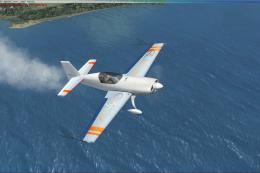
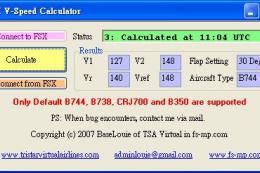

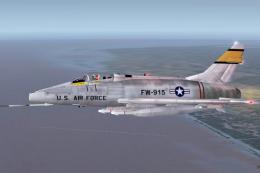
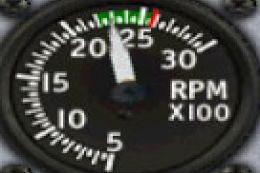
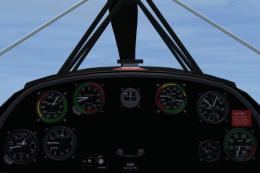
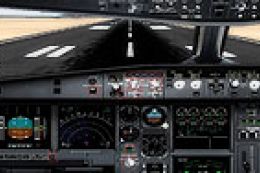
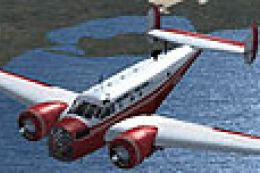

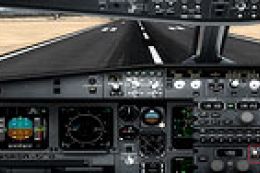
4 comments
Leave a ResponseThe content of the comments below are entirely the opinions of the individual posting the comment and do not always reflect the views of Fly Away Simulation. We moderate all comments manually before they are approved.
Hi. I used this application for pmdg 737 ngx. But it says 80 knots and immediately says v1, vr, v2. What do I have to fix? Could you help?
I also just got the display without sounds for the Airbus. Followed the instructions carefully.
Hi .. il do all your readme file.. but i still cant hear the v1 or v2 after take off clereance.. Sory for my badenglish☺
Nope. Failed completely in POSKY's 737-200. Waste of space.